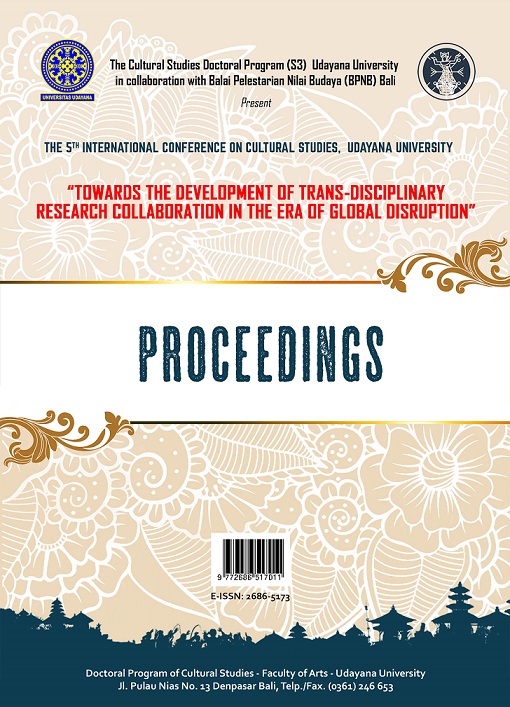DISRUPTION OF MEDIA IN POLITICAL SPACES AND POST-TRUTH ERA
Abstract
The dynamics of the internet to connect and transmit information make rapid changes to communication globally. The presence of the internet is part of a process of cultural change. These changes occur because of the disruption of internet. In the political process, people often use new media to organize campaign actions, help the elections in the open way, and provide greater space for independent opinion and expression in cyber space. Social media such as Facebook, Twitter, Instagram, Blogs, YouTube, WhatsApp and others become a fact of disruption, replaced the mainstream media that is commonly used in political campaigns.
The emergence of political buzzers with followers often changes the format of the campaign to be more open, critical and actual. Buzzers who work independently without official institutions cause them to become producers of information based on their own opinions and are free to side with certain parties or political figures. Openness of digital information in the post-truth era has caused people to be flooded with information. The problem that arises later in the community is not how to get the news, but rather the lack of ability to digest information properly. Post-truth makes the position of opinion above facts, lies and hate speech become commodities in politics industries in the digital space.
Downloads
References
Cohen, Jonathan. 2009. “Mediated Relationship and Media Effect: Parasocial Interations and Identification”. Dalam The Sage Handbook and Media Prosseces and Effects. Ed. Robin L. Nabi dan Mary Beth Oliver. Thousand Oaks, CA: Sage, 223-236.
Ekrut. 2019. “Pengguna Internet Indonesia Habiskan 5,5 Jam per Hari dengan Ponsel”. (https://www.ekrut.com/media /pengguna-internet-indonesia-habiskan-5-5-jam-per-hari-dengan-ponsel, accessed Diakses 18 Jul 2019)
Haryatmoko. 2007. Etika Komunikasi. Jakarta: Raja Grafindo Press
Indonesia, Media. 2018. “Post Truth dan Literasi Media”. (https://mediaindonesia.com/read/detail/140705-post-truth-dan-lite rasi-media, accessed 28 Juli 2019).
Kompas. 2019. “APJII : Jumlah Pengguna Internet di Indonesia Tembus 171 Juta Jiwa”.. (https://tekno.kompas.com/read/2019/05/16/03260037/apjii-jumlah-pengguna-internet-di-indonesia-tembus-171-juta-jiwa, accessed 22 Juli 2019).
Kompas. 2019. “Facebook Jadi Medsos Paling digemari di Indonesia”. (https://tekno.kompas.com/read/2019/02/05/11080097/facebook-jadi-medsos-paling-digemari-di-indonesia?page=all, accessed 14 Mei 2019).
Lister, M. et al (Ed.). 2009. New Media: A Critical Introduction (2nd ed.). London and New York: Routledge Taylor & Francis Group.
Nugroho, Y., Putri, D.A. & Laksmi, S. (2012). Memetakan Lansekap Industri Media Kontemporer di Indonesia. Jakarta: Ford Foundation.
Nusantara, Pewarta. 2019. “Gejala Perubahan di Era Disruption”. (https://www.pewartanusantara.com/gejala-perubahan-di-era-disruption/ accessed 20 Jul 2019).
Tirto. 2017. “Politik di Era Industri Buzzer”. (https:// tirto.id/politik-di-era-industri-buzzer-czqF, accessed5 Mei 2019).





